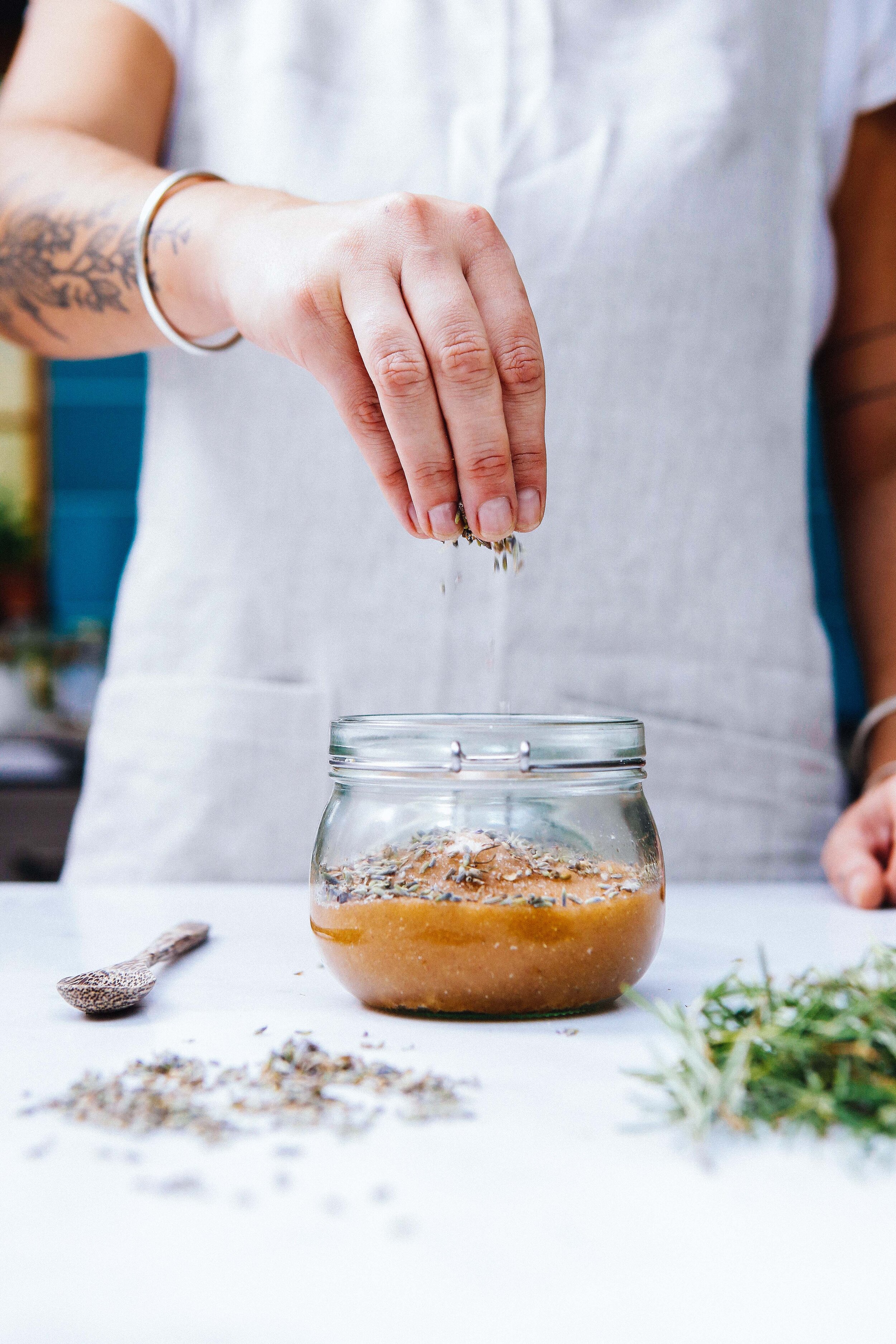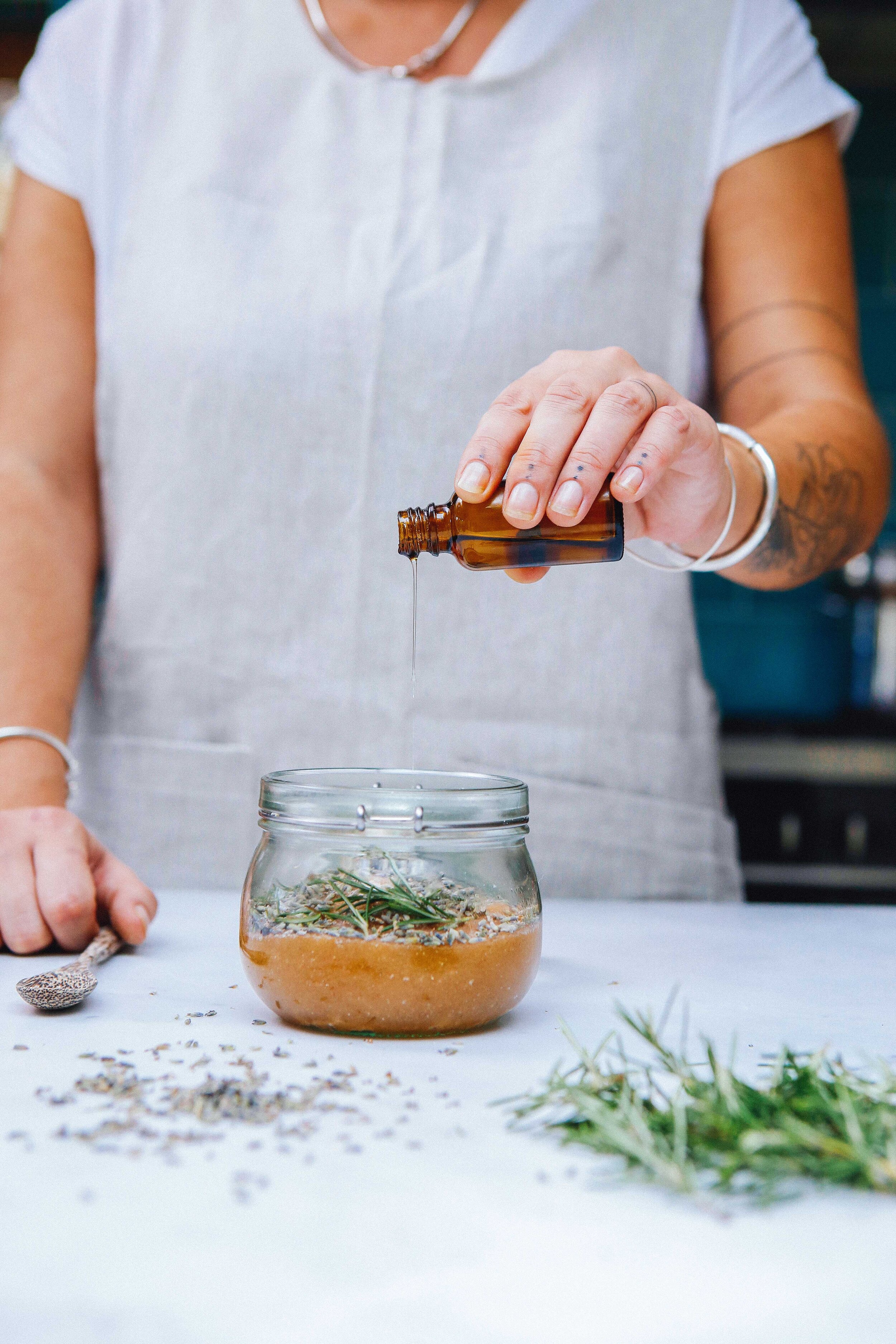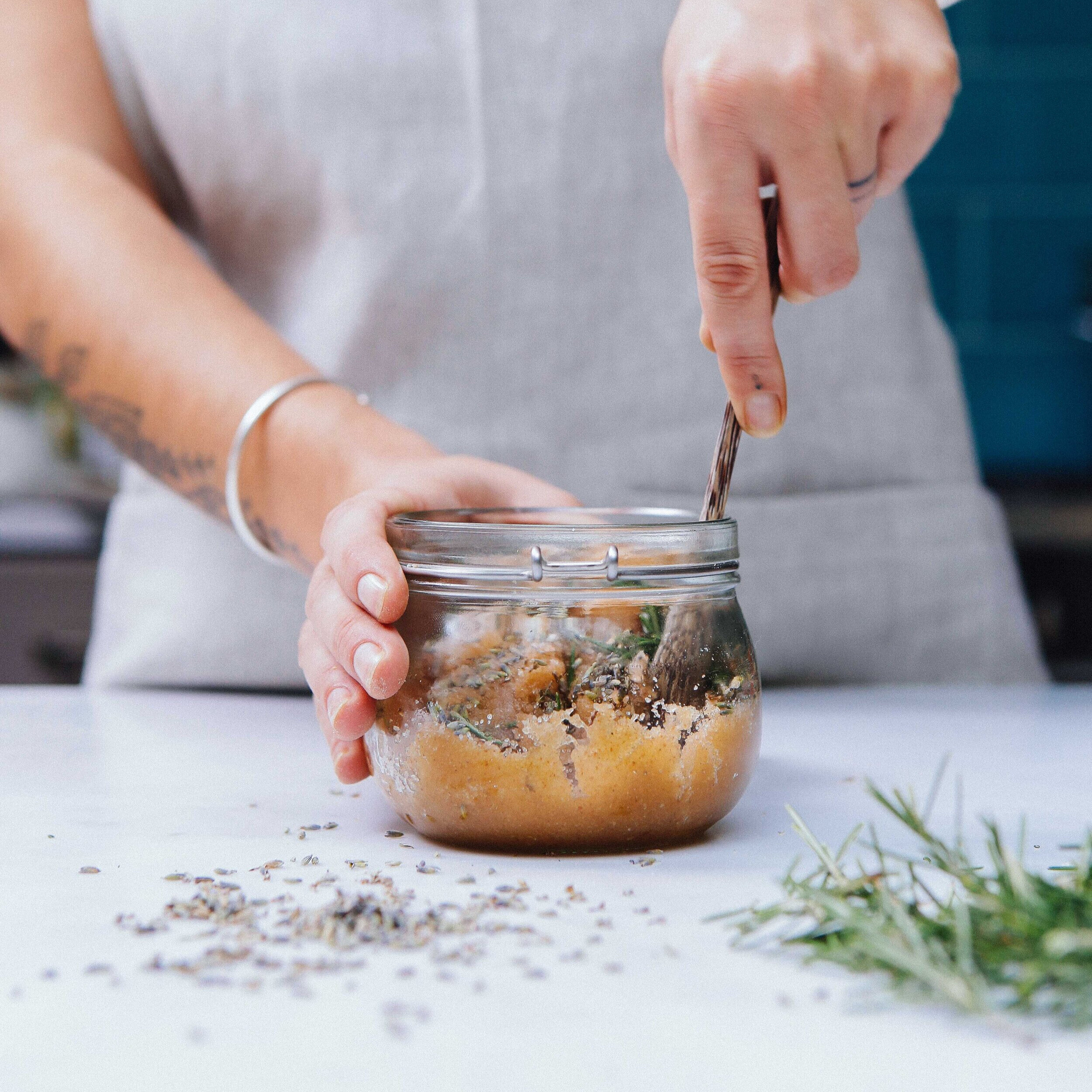HERBY BATH SALTS
HOW TO: YOUR VERY OWN BATH SALT RECIPE
*
We recently had to discontinue our Bath Salts. It wasn’t something that we wanted to do, but those big beautiful jars of salts were taking up so much space in the workshop that we just couldn’t store them any more
But we didn’t want you guy to go without, so we decided to put together a recipe for you to try at home. You can keep it as simple as you want or jazz it up a little bit to make it that bit more special.
There are so many different variations on bath salts, so i thought I’d run through a few of the key choices you can make below. But if you don’t want to hear me go on about the varying benefits of oils and salts, you can just scroll down to the bottom for the basic recipe in all its simple, no fuss glory!!
SALT
*
Choosing a blend of two or more salts is a nice way to give your Salt Bath an extra boost. You can choose Himalayan + Epsom salt, as we did in our Bath Salts, or even add in some Sea salt for a a more complex array of minerals. Whatever you choose, short of picking out your standard table salt, you skin is going to get a boost.
What is more important to keep in mind is whether you want your bath salts to act as an exfoliator, or if your looking for a softer bath time experience. Short of blending your Himalayan Pink salts or Sea Salts, they’re going to add a scrubby element to any bath. Where as Epsom salts dissolve more readily, giving the water a softer quality.
At any rate, we suggest using a blend, adjusting it to your personal preference. Start with a 50/50 ratio to see how you get on, and adjust from batch to batch.
*
OILS OILS OILS
*
When it comes to picking a base oil, there are so many to choose from that it can become a bit overwhelming. So we’ve compiled a list of our favourite oils below, along with their relative skin loving benefits. You can pick one to keep it simple, or mix a few together and make your own personal blend
*
JOJOBA - Closest to the skins natural sebum, jojoba moisturises the skin without causing an imbalance in sebum production. It is an anti-inflammatory oil, which means it helps to soothe sore or chapped skin, reducing redness and dryness
SWEET ALMOND - An inexpensive and highly nutritious oil. It is rich in proteins, essential fatty acids + vitamins E and D. Almond oil is also known for its ability to balance the complexion; its high Vitamin E content is effective in treating sun damage, scaring and the signs of aging. Readily absorbed, this light weight oil is the perfect base oil for a bath.
APRICOT KERNEL - is a light, readily absorbed oil. Known for its anti-inflammatory properties it helps to repair dry, damaged skin and also promotes healthy hair growth - So you wont be worried about dipping your hair in while you bathe.
GRAPE SEED OIL - Packed full of Vitamin E and Omega 6 fatty acids, this is another oil that can work wonders for your skin. Aside from its moisturising properties, it is known to reduce the signs of aging, reduce the size of pores and the appearance of scares.
ROSEHIP - With a deep reddish orange hue, rosehip is one of our favourite facial oils, but be careful, use too much and you could be left with red rings around the bath. We suggest adding no more than 5mls of this beauty
So there is a lot to choose from. There’s a lot to be said for keeping things simple and just choosing sweet almond or jojoba, as the main player in this recipe is the salts any way. But if your just not sure you can always grab a bottle of our Bath + Body oil and use that instead. It has a blend of Almond, Apricot Kernel + Grapeseed, which means less fuss and more bath time for you.
FLOWER OILS + DRIED HERBS
*
Now, when we make bath salts for ourselves, we tend to use any old thing we have lying around the house. But saying that, our house is adjacent to a workshop full of dried herbs and weird and wonderful essential oils. So it might not be so simple for others to do the same.
When selecting your essential oils, the main thing you want to think about is what kind of bath your looking to have. Are you lusting after a dreamy, spa soak that would be enhanced by the floral + calming ylang ylang? Or a fresh, head clearing experience that only a blend of rosemary can achieve?
Below I’ve put together a list of common blends that compliment each other for inspiration, have a browse through and take your pick
Lavender + Rosemary
Ylang Ylang + Rose Geranium
Lavender + Clary Sage
Patchouli, Orange + Clary Sage
Cedarwood + Beramot
Lavender + Patchouli
Fennel, Sage + Petitgrain
Rosemary, Eucalyptus + Cedarwood
Whatever your preference, the most important thing is that you like the smell of the oil your using. Don’t use the basil essential oil that your not overly keen on just because its the only thing you have. This recipe works fine without any essential oils at all, they’re just a nice addition!
HERBS
*
Our main favourites are Lavender, Rosemary + Sage. These are great herbs for use in anything from cooking to bath soaks, but part of what makes us love them is the fact that they grow readily in any English garden. So every Autumn + early winter we cultivate whats left of these bushy herbs and dry them out for use throughout the dark months ahead.
That said, there are a wide variety of herbs you can chop up and add to your salt bath, and most of them can be grown in your garden
Eucalyptus
Fennel
Chamomile
Calendula
Lemon Balm
Rose Petals
Try to match the herbs you use with the essential oils you picked out. It is hard to go completely wrong with this, but a blend of Rose + Fennel might not be exactly what you were looking for in a bath.
THE RECIPE
*
Now that you’ve selected your ingredients, it’s time to apply these to the recipe
250g Of your chosen salt, try mixing at least two types. See above for some ideas
5g essential oils - If you don’t have scales that are sensitive enough, 2-3 drops will do. Remember not to get carried away with this, as essential oils can irritate the skin if you add too much
10g Of your chosen base oil or blend - See above if your not sure which one to use. Remember you can always add a bit more or less of this depending on how moisturising you want your bath to be.
20g dried herbs of your choice
Mix well in a bowl and transfer into a clean jar - Kilners are great for this because the lid seal keeps out any unwanted moisture
STORAGE!
Keep you new bath salts in a cool, dry place. Try to keep moisture out - this means keeping it away from the bath while your enjoying it! The bath salts have no preservatives in them, and so even a little bit of moisture can cause the salts to crystallize and the oils to go bad. We always suggest using a spoon to add them to the bath for this reason.
That way you can enjoy indulgent baths for longer!




